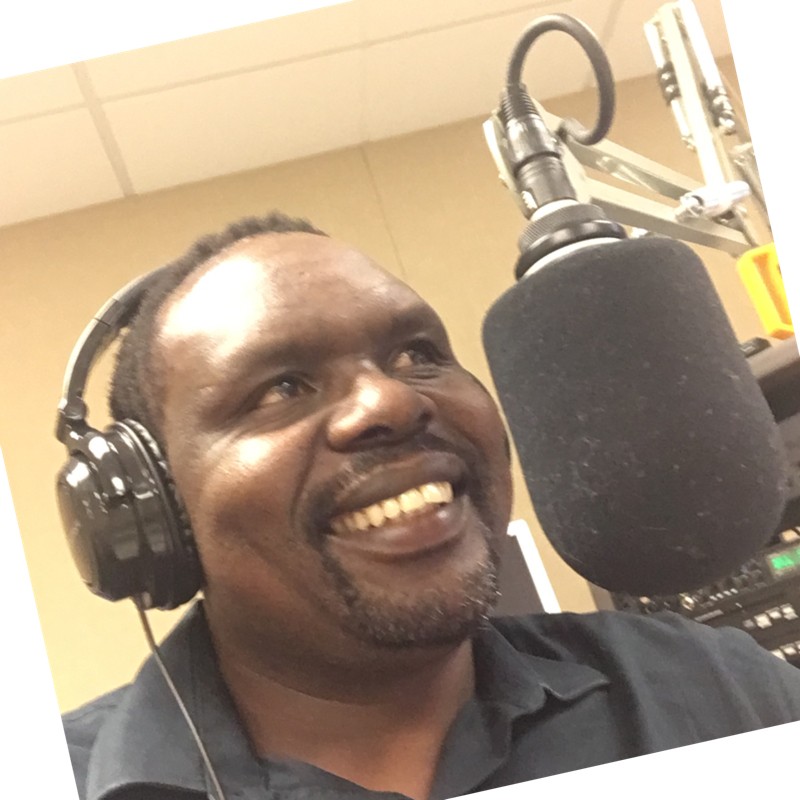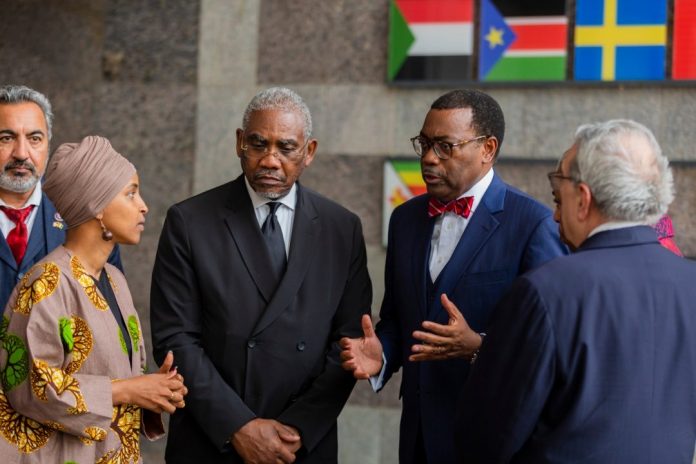
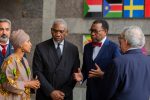
It is no secret that during the four years prior to the election of President Joseph R. Biden,
African countries did not have the best of relations with the United States.
Biden’s predecessor, former President Donald J. Trump, did not have the best opinion of African countries. While discussing immigration with a group of U.S. senators at the White House, Trump is reported to have called Haiti, and African nations “shithole countries” arguing that America should give preference to immigrants from European countries like Norway.
It could be argued, however, that Trump was only saying out loud what the United States’ attitudes towards Africa, which has historically been of condescension and looking at the continent as a place of great suffering that needs saving.
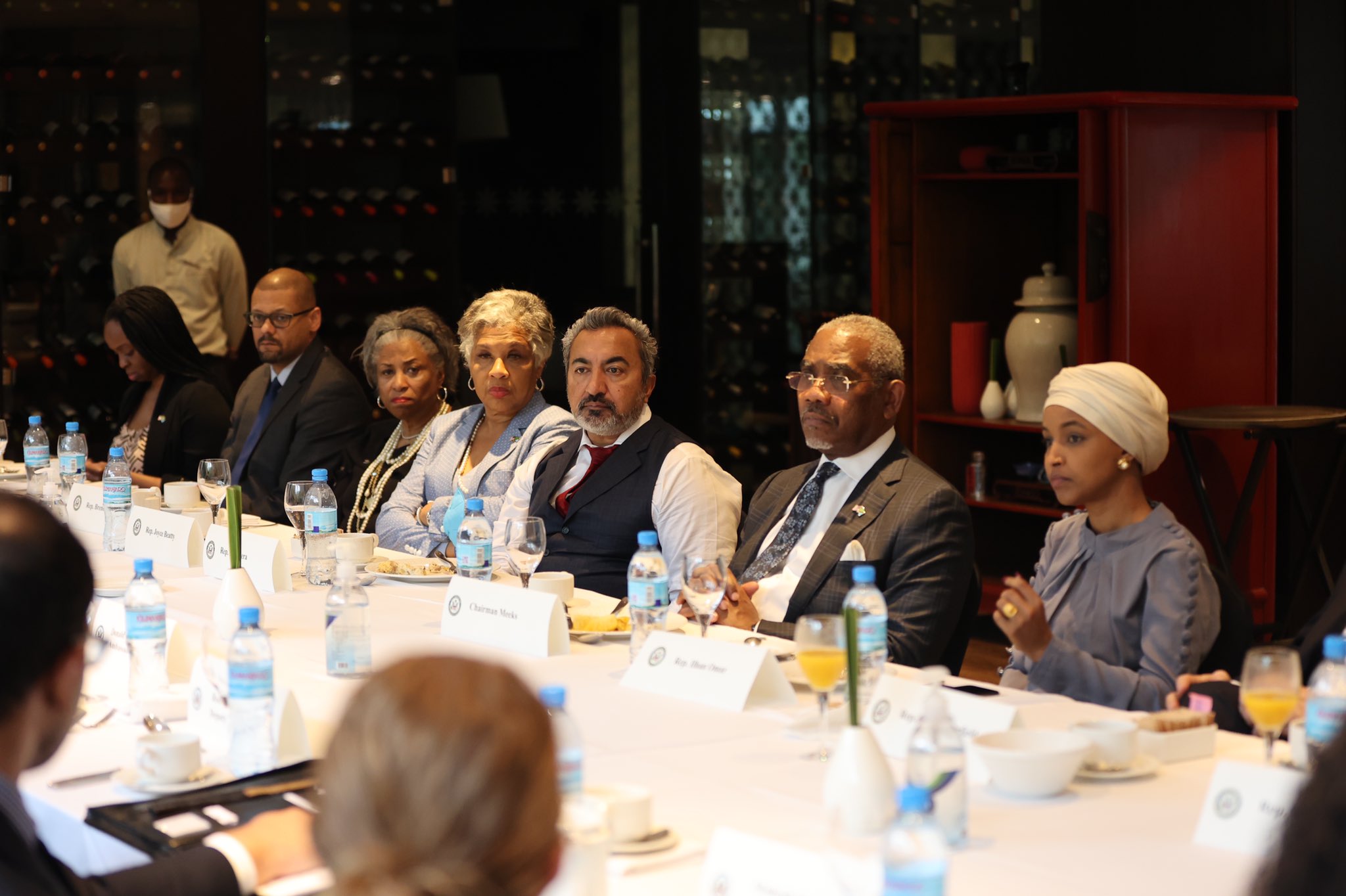
But now Black members of Congress have a rare opportunity to try change those flawed perceptions of Africa at the highest levels of the U.S. government, says Rep. Ilhan Omar of Minnesota, who recently returned from a Congressional Delegation (CODEL) to four African countries.
“A lot of us found the last administration’s policy towards Africa a little challenging for us to engage with,” said Omar during a recent interview with Mshale. “The CODEL was our way of saying that Africa is not going to be on the back burner.”
Rep. Gregory W. Meeks, who is also the Chair of the House Foreign Affairs Committee, led a delegation in February that included Democratic members of Congress Omar, Ami Bera, Joyce Beatty, G.K. Butterfield, Brenda Lawrence, and Troy Carter. The lawmakers visited Sierra Leone, Liberia, Côte d’Ivoire, and Tanzania, and held meetings with heads of state, top government officials, and business leaders. They also met with members of the opposition and civil society leaders, Omar says.
“One of the things that we are interested in and have been talking about quite a lot is promoting trade and investment in Africa,” Omar says. “One of the reasons that we visited these four particular countries is that they’re in different stages of development.”
In 2000, the U.S. Congress enacted the African Growth and Opportunity Act (AGOA) to give trade preference by providing duty-free entry of products from 38 countries on the continent into the U.S. market. Since then, the AGOA has been the main avenue of U.S.-African engagement in trade and investment.
“We wanted to affirm that commitment that there was going to be action behind those words, and to highlight some of the things that we will be working as we move forward,” Omar said.
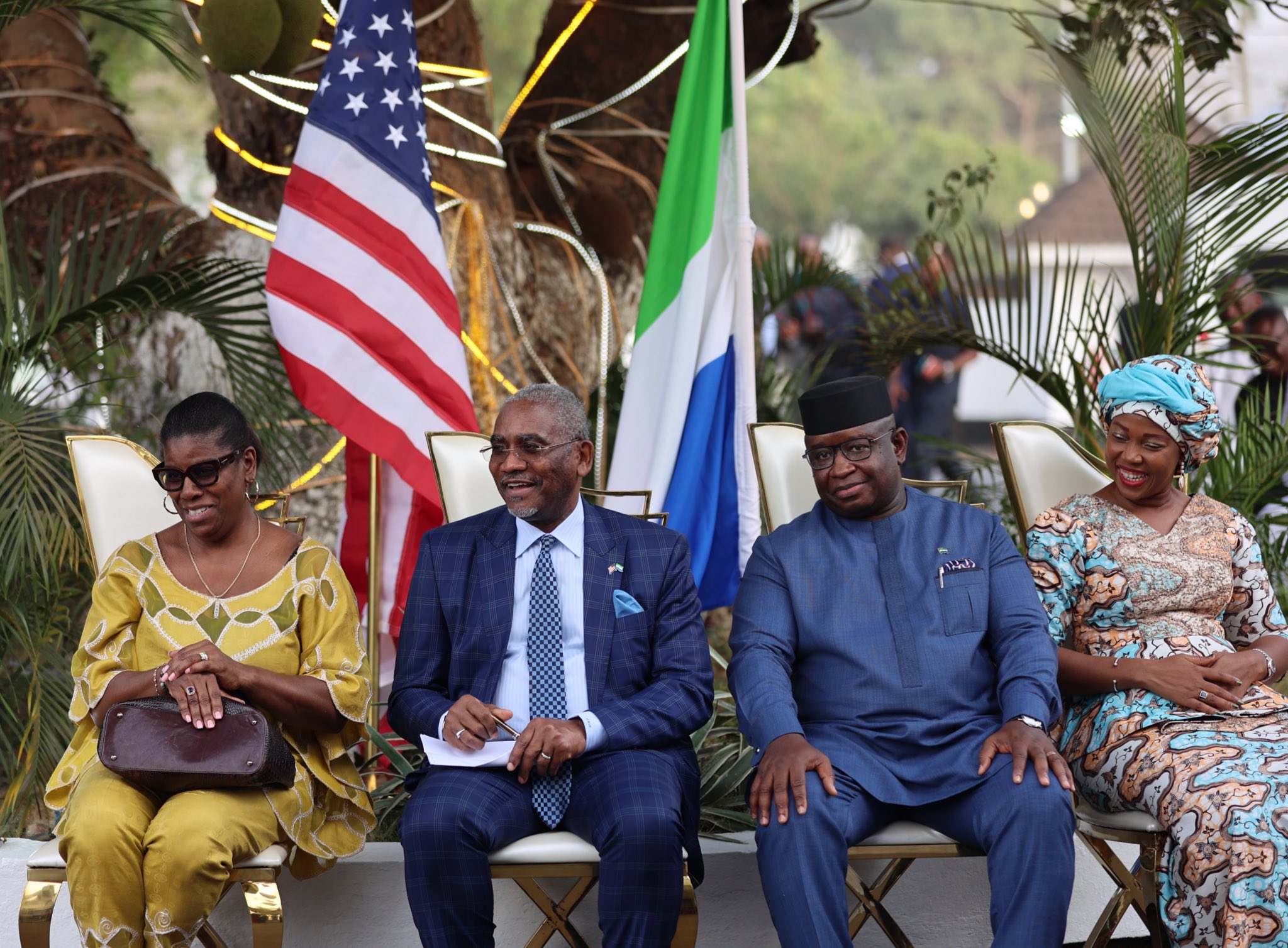
Mark Ritchie, the executive director of Global Minnesota, a nonprofit, nonpartisan organization that fosters international understanding, says relations with the people, governments, institutions, and companies on the African continent are very important for the United States. That collaboration is even more needed now than ever because of the effects of the coronavirus pandemic on economies around the world.
“The United States has been an excellent partner with the people of many countries in Africa,” Ritchie says. “We can and must do more to partner in the area of health and wellness, including advanced research on long-term solutions to viral pandemics.”
Ritchie says it is also important for the United States to continue to partner with African countries in countering terrorism, and help the continent become free of conflict.
“Recent decisions to abandon our focus on fighting terrorism and pivot to engaging in competition with Great Powers has resulted in a resurgence in terrorism that threatens stability and could trigger refugee flows that need urgent attention,” Ritchie says.
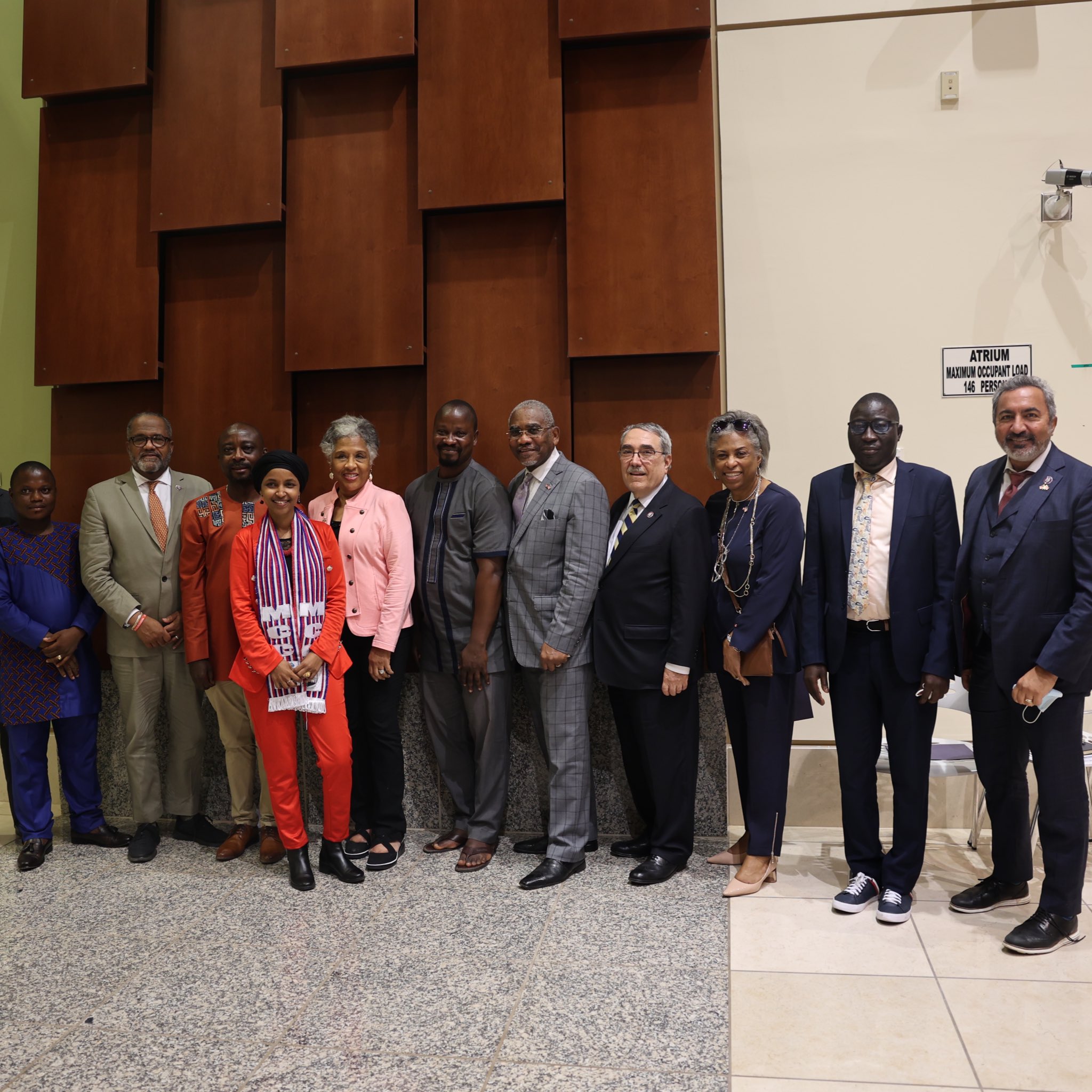
He adds that more emphasis should also be put on addressing issues of climate change in Africa and around the world.
“The entire planet needs to reach a net-zero carbon footprint within this decade and that means some later shifts in personal and society wide actions and behaviors,” Ritchie says. “We are all in this climate crisis together, and it will take every single person’s effort to save the planet from an intolerably hot future.”
While he agrees with Ritchie on the need to act urgently on climate change, Horace Campbell, a professor of African American studies and political science at Syracuse University in New York, says Africa does not need more militarization.
Also Read: America’s largest consulate in the world will be in Africa.
“What I’ve learned in my discussions with Africans is that they are against the so-called war on terror because it diverts attention from reconstruction,” Campbell says.
Campbells says countries on the continent that are struggling with insecurity could learn more about demilitarization from other African nations like Angola, South Africa, and Tanzania, which he says have made provision of education, water, and healthcare more important priorities than funding the military. If they want to prosper, the first thing African countries should do is end all military agreements with countries like the United States, France, Britain, he says.
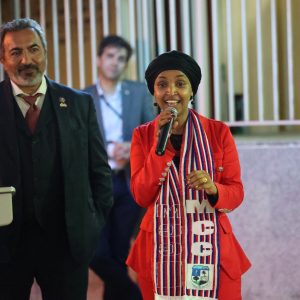
“Africans cannot demilitarize because they’re compromised by the relationship with the United States, through the United States Africa Command, which signs agreements that deepen the militarization of the continent,” Campbell says.
Campbell says he’d like to see Congressional Black Caucus emulate Ron Dellums, the California congressman who rallied the Black community to support Nelson Mandela at a time when President Ronald Reagan’s administration supported South Africa’s Apartheid government.
“If they want a U.S. foreign policy that turns a page in Africa, it must be a new page to focus on demilitarization, reconstruction, and tackling global warming,” Campbell says. “Anything else would just be supporting white supremacy in Africa.”
Omar says she is aware of the high expectations Black members of Congress have in efforts to shift the U.S policy towards Africa, especially now that Meek, an African American, is the Chair of the House Foreign Affairs Committee.
“There is going to be more investment in trying to engage with the continent differently,” she says. “One thing we have to move away from is the colonial approach to our relationships on the continent.
Omar also agrees with Campbell that the United States has to abandon “the military-first” approach to counterterrorism, which she blames for destabilizing regions like the Horn of Africa and the Sahel, leading to severe violations of human rights.
“Supporting peace and good governance is not only the right thing to do morally,” she says. “it’s a much more productive way to confront the problem of terrorism, whether it’s Al-Shabaab or Boko Haram.”
But Omar says she and her colleagues of African descent in Congress will continue to push for a U.S. foreign policy that sees Africa as a partner and not as a place that needs help.
“I have raised this repeatedly with the State Department and [United States Agency for International Development] and will continue to advocate for policies that I believe will be both morally and strategically better than what we’re doing now,” she says.
About Edwin Okong'o - Mshale Contributing Editor
Edwin Okong'o is a Mshale Contributing Editor. Formerly he was the newspaper's editor.

